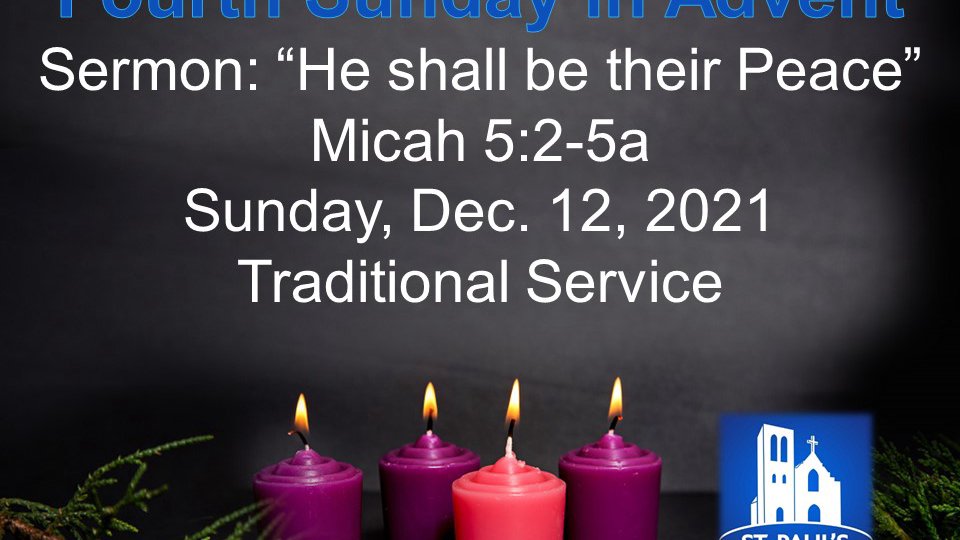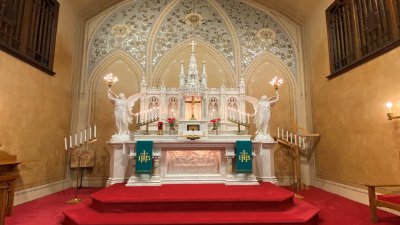“And He shall be their peace.” That is how the prophet Micah described the coming Messiah. God’s people will not find their peace in a big bank account. Nor will our peace be found in being part of the right social circle. Nor will our peace be found in a political leader or even in a political ideology. Nor will our peace be found in our living good and upright lives. Our peace is found in the Messiah, in Jesus, in the Good Shepherd whose strength is the Lord. Mary’s circumstances were difficult; the angel’s announcement of her pregnancy had to be quite a surprise. Pondering all these things in her heart, she found peace in God, who blessed her. So she sang God’s praises, a song that we sing still today, the Magnificat, a powerful reminder that “He shall be their peace.”

12/19/21 Traditional Service
Sermon: “He shall be their Peace” Micah 5:2-5a
December 19, 2021
04/21/24 Traditional Service
April 21, 2024
One of the small but interesting features of many cathedral and monastery churches in Europe and other places is presence of misericords. A misericord is a small wooden shelf attached to the underside of a folding seat in a church, often in the choir area. Misericords physically supported people at worship during long periods of standing during extended prayer and other services when sitting was not permitted. The term “misericord” means “pity of the heart.” That word is part of the church phrase Misericordia Domini, a Latin term for describing the acts of mercy of God to His people. Jesus, the Good Shepherd, constantly and consistently shows acts of mercy to us as His people. His care comes straight from the heart!
04/21/24 Praise Service
April 21, 2024
One of the small but interesting features of many cathedral and monastery churches in Europe and other places is presence of misericords. A misericord is a small wooden shelf attached to the underside of a folding seat in a church, often in the choir area. Misericords physically supported people at worship during long periods of standing during extended prayer and other services when sitting was not permitted. The term “misericord” means “pity of the heart.” That word is part of the church phrase Misericordia Domini, a Latin term for describing the acts of mercy of God to His people. Jesus, the Good Shepherd, constantly and consistently shows acts of mercy to us as His people. His care comes straight from the heart!
04/14/24 Praise Service
April 14, 2024
AS WE GATHER “Amazing” is a commonly used word in the English that has a rich history. It came into common usage in the 14th century as a variant of the older root word “amasod,” which meant stupefied or confounded or overwhelmed with sudden surprise or wonder. The word “amazing” shows up several times in hymns that we sing—from describing the action of God in the birth of Jesus as “love amazing” (LSB 375:1) to bringing to our hearts and minds that in His suffering to pay the price of our sins, our Lord showed “amazing pity” (LSB 437:2). Two other hymns refer to the “amazing grace” of God (LSB 744:1; 558:2), and in another hymn, the author of the text rejoices that God “has done amazing things to me” (LSB 934:2). The season of Easter is a time for us to be truly amazed and filled with the praise of our amazing Lord!





